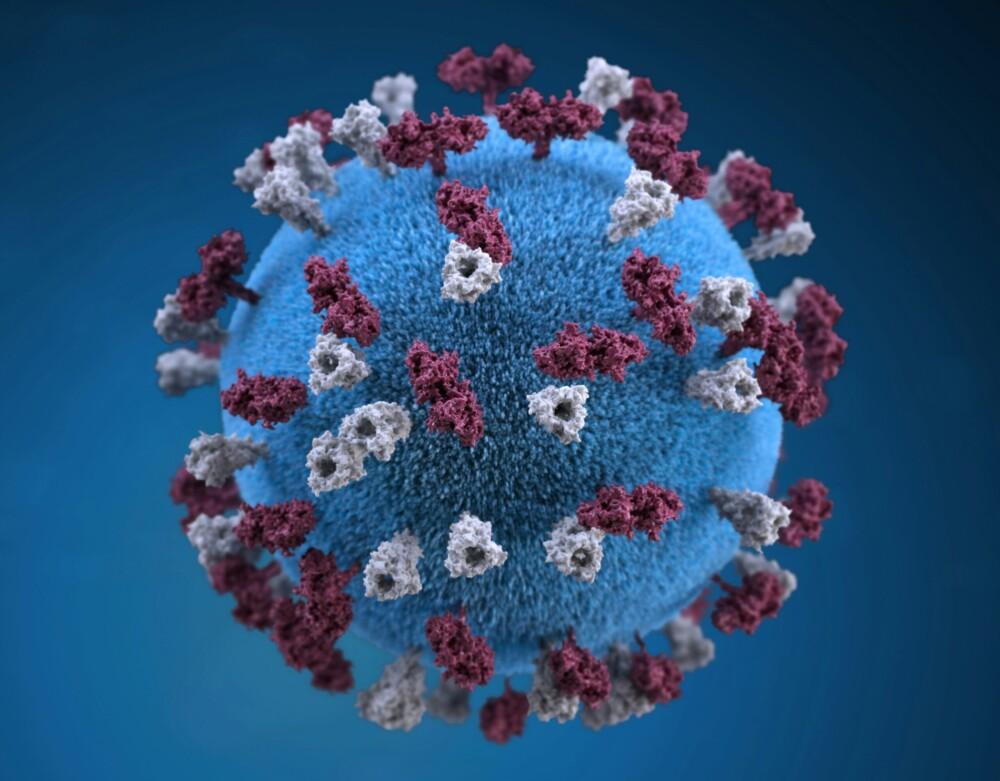Is Chronic Epstein-Barr Virus Real?
Chronic Active Epstein-Barr virus (CAEBV) is a rare but real condition where the person infected cannot control the viral infection. This progressive disease shows viral persistence with a higher concentration of EBV DNA.
EBV-positive lymphocytes also infiltrate the organs, increasing the chances of viral reactivation. The condition has prolonged symptoms like mononucleosis and affects mostly children and young adults.
Studies done on 121 patients at the Beijing Friendship Hospital show that 60.3% of them progress into hemophagocytic lymphohistiocytosis (HLH). The disease is rarely recognized, as it overlaps with other medical conditions such as long COVID.
This article will delve into the peculiarities of EBV, showing it is a real condition that needs appropriate treatment.
Why Is There Controversy Around Chronic EBV?
Medical controversy around chronic EBV exists because there’s a divide between mainstream and naturopathic medicine.
Both of them offer different views on how the virus behaves in the body after the initial infection. The different opinions lead to confusion and frustration, causing the condition to be disregarded.
Conventional doctors debate chronicity because they believe reactivation is rare. Once the infectious mononucleosis is gone, the EBV goes into a latent infection state. The virus becomes dormant and hides in B cells. If it does reactivate, it’s not with any noticeable symptoms.
Alternative naturopathic medicine believes that the virus doesn’t always stay dormant. From their point of view, persistent EBV can happen, especially in those with immune dysfunction. Patients report ongoing symptoms such as brain fog, fatigue, and other symptoms suggesting viral reactivation.
What’s the Difference Between Acute, Latent, and Chronic EBV?
Acute, chronic, and latent EBV differentiate themselves based on the symptoms. An acute infection with EBV is like a volcanic eruption. It’s the initial infection, where you feel most of the symptoms. This initial EBV infection can present like a flu and you may never know you actually had mono.
The latent stage is quieter in comparison. You know there’s magma down there, but you don’t worry that it will harm you. You generally feel best when the virus enters latency.
Chronic EBV is the “quiet before the storm,” where the volcano releases toxic substances right before erupting again. This reactivation produces lingering symptoms that suggest the viral load is replicating again. The symptoms are less invasive than the acute stage but still affect you.
What Are the Symptoms of Suspected Chronic EBV?
The symptoms of chronic EBV are brain fog, muscle weakness, and swollen lymph nodes.
Studies done on twelve North Huashan Hospital CAEBV patients show that recurring fevers appear in 100% of patients. Chronic fatigue persists despite rest, which reduces a person’s productivity.
Chronic EBV mimics other syndromes, such as:
- Chronic Fatigue Syndrome (CFS): Brain fog, excessive fatigue, and post-activity tiredness
- Long Covid: Neuroinflammation, immune dysfunction, and fatigue
- Lyme: Brain fog, muscle pain, joint pain
Reactivation symptoms linger despite the traditional EBV tests appearing normal. For this reason, many patients are told that everything is “in their heads.”
How Do Doctors Test for Chronic EBV—and Why Is It Difficult?
Doctors test for CAEBV using traditional EBV serology. Functional medicine providers look for the following antibodies in the immune system:
- VGA IgM: Appears shortly after exposure and suggests early infection. It is possible for this to show you during a reactivation as well, but is more common with an early infection.
- VCA IgG: Shows accurate EBV infection but persists after recovery.
- EBNA IgG: Appears after recovery from the acute stage and lingers for life.
Early antigen testing can show spikes during reactivation. However, while these tests detect antibodies, they often confuse the diagnosis.
Studies done in 2017 at the Huazhong University of Science and Technology, Wuhan, show that only 15% of patients are diagnosed correctly. That’s because it’s difficult to differentiate between the dormant virus and reinfection.
What Does the Research Say About Chronic EBV?
Research on chronic EBV is mixed but evolving. Traditional medicine is skeptical of giving the CAEBV diagnosis.
However, recent studies show that reactivation correlates with autoimmune dysregulation, long COVID, and neuropsychiatric conditions.
These lower the immune system functionality, which are reactivation triggers for EBV. On the other hand, the immunity issues are caused by reactivation. The subject goes both ways, and current research does not have the data to prove a single direction.
Studies confirm links between CAEBV and long COVID, showing viral replication. An average of 50% of patients in a control group presented higher EBV DNA in their throat culture. The replication appeared like a reactivation rather than an initial infection.
A Nature Genetics study also shows that EBV infects B cells when the virus hides in them. These produce their own antibodies, mainly among those who are genetically predisposed.
These reactivations promote the release of cytokines, such as:
- Tumor Necrosis Factor-alpha (TNF-α): Linked to systemic persistent inflammation
- Interferon-gamma (IFN-γ): Connected to autoimmune exhaustion
- Interleukin-6 (IL-6): Promotes the production of antibodies and is linked to inflammation
The research is not settled, but studies show that chronic EBV worsens an existing immune condition and is also triggered by it.
How Do Naturopathic Doctors Address Chronic EBV Symptoms?
Naturopathic doctors address chronic EBV symptoms by implementing root-cause health plans. Chronic EBV is triggered by immune suppression, so treatment restores the balance.
Naturopaths treat holistically using stress-reduction techniques, nutritional therapy, and lifestyle changes. Naturally Sue Wellness in NYC, and virtually runs immune labs and offers personalized plans.
NYC functional medicine doctors use immune modulation and they consider adding in adaptogenic herbs like Ginseng, licorice and Ashwagandha. Every patient presents very differently and their health plan would differ from person to person. One person may be the perfect fit for ginseng, where another it would exacerbate their symptoms.
The treatment plan leads to proper immune system functioning and the herbs support viral balance to prevent full reactivation.
Can EBV Cause Autoimmune Diseases or Other Chronic Conditions?
EBV causes autoimmune diseases through molecular mimicry and other mechanisms. This happens when the immune system activates an immune response toward the autoantigens.
Chronic inflammation and immune misfiring stimulate cytokine production. This leads to weakened immunity and conditions like:
- Multiple Sclerosis: A study published in 2024 showed that about 100% of MS patients were diagnosed with EBV in the past.
- Lupus: Chronic EBV antibodies cross-react with human DNA, causing the immune system to attack itself.
- Hashimoto’s: The thyroid tissue contains higher EBV loads, activating the condition.
- Rheumatoid Arthritis: EBV T-cells can become autoreactive and persistent virus triggers flares in the body.
EBV activates autoimmunity genes, affecting those with a predisposition to chronic inflammation.
Why Do So Many Patients Feel Ignored or Misdiagnosed?
Many patients feel ignored or misdiagnosed because of medical gaslighting, chronic illness stigma, and diagnostic gaps. Here’s how they come into play:
- Medical Gaslighting: Providers are invalidating a patient’s concerns, saying they are caused by anxiety or stress.
- Chronic Illness Stigma: Doctors assume that the pain or long-term fatigue is psychological.
- Diagnostic Gap: Lack of proper testing measures can’t check for reactivated EBV infections.
The data presented by HealthCentral shows that 94% of their patients feel like their symptoms are ignored or dismissed.
This is frustrating, especially when labs don’t show an active problem.
Symptoms are dismissed in traditional settings due to a lack of testing equipment. Patients seek answers, but since the lab tests look normal, people are sent home with even more questions.
Moreover, reactivations are diagnosed as latent EBV and treated incorrectly.
Final Thoughts: Why the Truth About Chronic EBV Matters
Chronic EBV still needs a lot of research. Conventional medicine deems the antibodies as a past infection. However, patients notice symptoms like brain fog, fatigue, and recurring illness.
On the other hand, naturopathic medicine promotes holistic recovery. Getting support and understanding from the provider empowers patients and drives healing.
If you suspect ongoing EBV issues, seek an alternative assessment to obtain patient-centered care.






